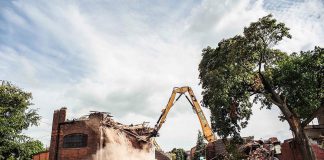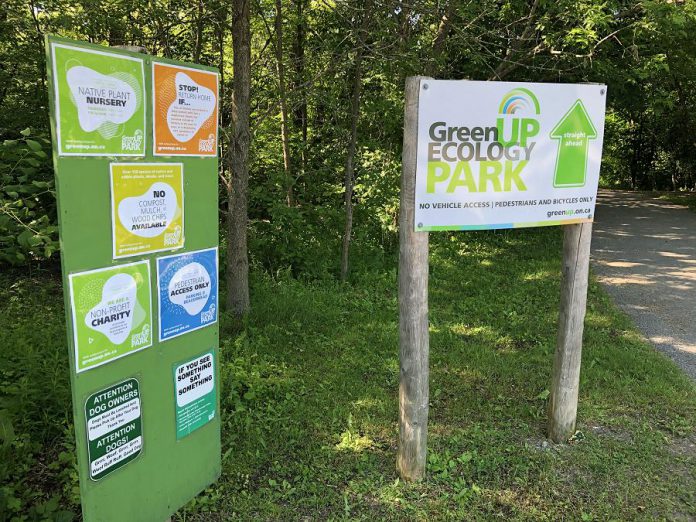
Happy autumn from the Ecology Park Nursery!
If you are considering welcoming a green neighbour to your yard or garden, keep in mind that spring and fall are the best times to introduce new plants, trees, and shrubs. In the spring and fall, the weather is cooler, the soils are moist, and plants are a bit dormant. Think about it like trying to move a child to bed: while they are sleepy, the disruption is reduced … sometimes.
Ecology Park’s annual one-day Autumn Sale takes place on Saturday, October 3rd from 10 a.m. to 4 p.m. Please be sure to follow social distancing guidelines and don’t forget to wear a mask. There will be signage posted at the entrance of the park displaying our COVID-19 procedures.
The sale will look a little different this year. In years past we’ve focused mostly on moving our inventory of trees, but this year we also have a lot of lovely native shrubs and wildflowers that would be beneficial and beautiful additions to your yard and garden. Follow @PtboGreenUP on social media to learn more about favourite species from some of our team at GreenUP.
We are unfortunately unable to offer any compost, wood chips, or cedar mulch this season due to the pandemic. However, we are still happy to offer advice on choosing the right tree or shrub, planting, and general plant care.
Ecology Park is located at 1899 Ashburnham Drive in Peterborough. Our nursery is open Thursdays from 10 a.m to 6 p.m. and Fridays through Sundays from 10 a.m. to 4 p.m. until Friday, October 9th.
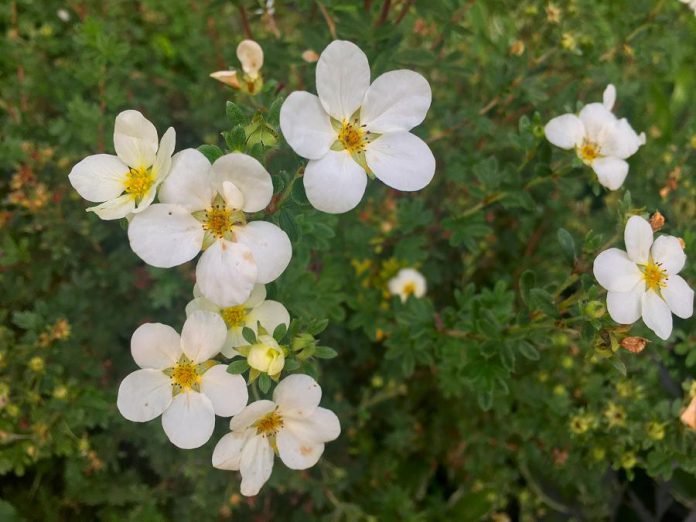
An ode to urban trees
They’re quiet, they’re helpful, and they mind their own business. Does this neighbour sound too good to be true? For all they do for us, being a tree in Peterborough is a darn tough job. Let’s take a quick look at the issues facing trees in our city and why exactly our leafy friends make for some of the best neighbours out there.
Urban life puts a lot of stress on trees. This makes it much harder to become long-lived giants like their forest cousins.
City trees are commonly planted in areas that restrict their root growth. Most folks think of a tree’s root system as an upside-down mirrored image of the tree, with many large deep roots shooting straight down, deep into the earth — but wait! While trees do have some deep roots, the majority of a root system is found within the top foot of soil.
You read correctly: almost all of a tree’s roots grow right below the surface. Excessive foot traffic, cars, and heavy equipment can compact the soil. This removes the air pockets in the soil that allow trees to breath and absorb water and nutrients.
Our urban trees also have a harder time collecting water and nutrients. Our paved city surfaces rush rainwater quickly into our storm sewers and away from thirsty roots. Additionally, the water is often contaminated by road salt, air pollution, and litter.
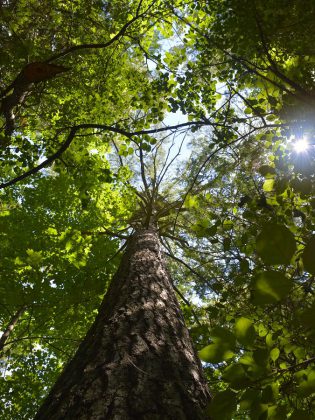
Nutrients normally found in rich topsoil are commonly removed during the construction of our homes and businesses before trees are planted. Important nutrients found in fallen leaves and decaying organic matter are often raked up and carted far away from our leafy friends.
And if that is not enough stress, we often damage trees with lawn mowers, weed-whackers, bike locks and vehicles. These open wounds can be exploited by native and invasive pests and diseases.
So what? With so many other things to worry about in Peterborough today, why should we care about our leafy neighbours? We should care because trees provide an enormous amount of benefits to us on a daily basis.
Trees have been proven to increase property values, sometimes up to 25 per cent. Boom.
Trees are good for business. Shoppers tend to enjoy the shopping experience more — and spend more — when leafy landscaping is involved. I’m not making this up.
Dollars can be saved in heating and cooling costs just by having trees strategically placed around our buildings. Trees reduce noise and air pollution, which can reduce or eliminate the need for built sound barriers or expensive air filtration systems.
Should I keep going?
Urban forests help prevent flooding. They slow down runoff, holding water in leafy canopies while sipping roots drink up the rainwater before it hits our already-stressed storm sewers, saving untold amounts in flood damages.
And there’s more.
Trees soak up sunlight and fight climate change by pulling carbon out of the atmosphere and transforming it into sugar and oxygen. You can breathe a bit easier with a sweet trade like that helping resolve our current climate crisis.
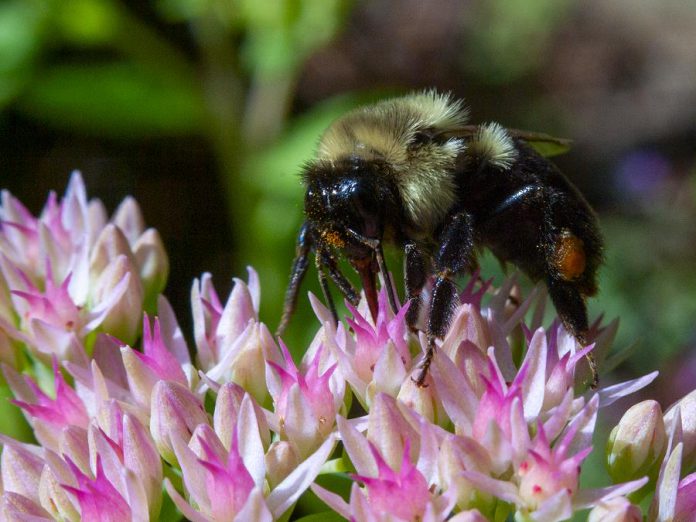
Trees are also vital sources of food and providers of habitat for the birds, bees and other critters we share our environment with.
Finally, trees enhance our lives just by being present. The beauty of the flowering eastern redbud, the autumn colours of the maples, or the smile gained from watching two squirrels chasing each other around the trunk of a tree — these experiences make our lives more vibrant.
Trees help us reduce stress and heal faster. Trees create a sense of place, a feeling of home, and a reason for poetry and song.
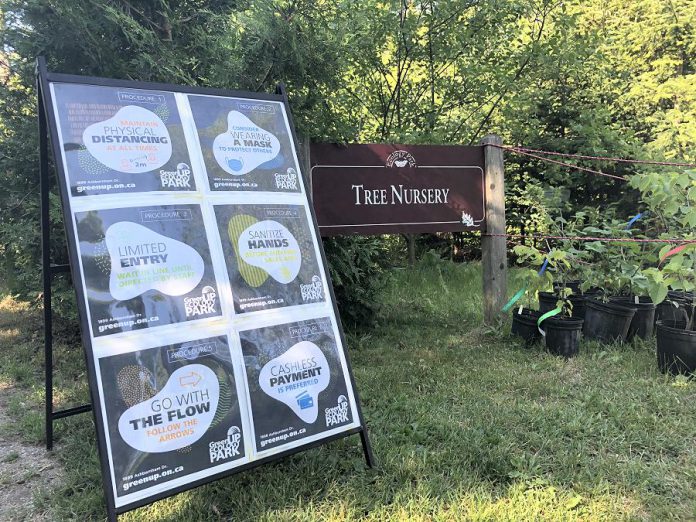
Despite the stressors, urban trees do a great job at overcoming the odds, and in great neighbourly fashion, they do so without complaining at all.
Happy autumn and happy planting!



























